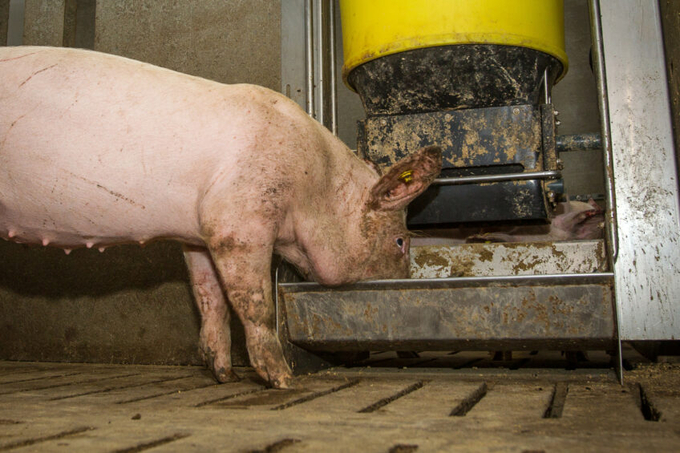June 14, 2025 | 08:32 GMT +7
June 14, 2025 | 08:32 GMT +7
Hotline: 0913.378.918
June 14, 2025 | 08:32 GMT +7
Hotline: 0913.378.918

Photo: Peter Roek
Dr Sandra Blome, scientist at the Friedrich-Loeffler-Institut (FLI) in Germany, is project coordinator of an international research project. In a press release she commented, “Even after adding large amounts of the infectious virus to various feed and bedding materials, no infectious virus was detectable after a short time.”
The project, initiated by the European Food Safety Authority (EFSA), aimed to delve deeper into the behaviour of ASF virus. As the virus is stable in the environment, it has long been assumed that it can also be transmitted via feed, water and other materials. In Germany, the Federal Institute for Risk Assessment (BfR) as well as the FLI participated. The research publication was published in EFSA Supporting Publications. Dr Blome continued to say, “Only in cold-stored fodder beet and potatoes was infectious virus still found in some samples, even after a longer storage period. This is probably due to the fact that ASF viruses are particularly stable in cold and humid environments.”
Due to the lack of empirical data, the FLI, together with the Swedish Veterinary Agency (SVA) and the BfR, worked on the EFSA-funded project (start 2022) to fill the existing gaps in knowledge. The aim was to investigate the stability of ASF viruses on feed, bedding and mechanical vectors under practical storage conditions. For this purpose, 14 relevant agricultural feed and bedding materials were used: grass, grass silage, hay, bark, peat, wood shavings, maize silage, rape, barley, wheat, oats, straw, potatoes and fodder beet.
All materials were contaminated with the ASF virus and stored at 5 different ambient temperatures (-20°C, 4°C, 10°C, 20°C and 37°C) for up to 9 months. The samples were analysed at different times for infectious virus and virus genome residues. The researchers also looked at the possible role of 3 different species of blood-sucking arthropods (arthropods such as seiners) to find out how long the arthropods studied could harbour the virus genome and infectious virus after ingesting infectious blood.
(PP)

(VAN) Extensive licensing requirements raise concerns about intellectual property theft.

(VAN) As of Friday, a salmonella outbreak linked to a California egg producer had sickened at least 79 people. Of the infected people, 21 hospitalizations were reported, U.S. health officials said.

(VAN) With the war ongoing, many Ukrainian farmers and rural farming families face limited access to their land due to mines and lack the financial resources to purchase needed agricultural inputs.

(VAN) Vikas Rambal has quietly built a $5 billion business empire in manufacturing, property and solar, and catapulted onto the Rich List.

(VAN) Available cropland now at less than five percent, according to latest geospatial assessment from FAO and UNOSAT.

(VAN) Alt Carbon has raised $12 million in a seed round as it plans to scale its carbon dioxide removal work in the South Asian nation.

(VAN) Attempts to bring down the price of the Japanese staple have had little effect amid a cost-of-living crisis.